13
Dec
About Us:

Andrea Monteiro is the former Director of Corrections in Yukon, Canada where she lived, worked and learned a tremendous amount about Yukon First Nations and life in Canada’s remote north. Between 2017 and 2019 she was the manager of the Independent Review of Ontario Corrections which provided arm’s length advice and recommendations on reforming Ontario’s adult correctional system.
To date, Ms. Monteiro has over 23 years of experience working with provincial, territorial, county, state, and federal correctional agencies. Additionally, she is the President-Elect of the Canadian Criminal Justice Association’s Board of Directors.
Prior to founding ECC in 2021, Ms. Monteiro held various executive, senior operational, and policy-making positions within government. These included Director of Corrections, Superintendent/Warden, Deputy Superintendent of Treatment and Programs, Deputy Superintendent of Operations, and Senior Policy Advisor.
Ms. Monteiro is a 2022 Governor General’s Canadian Leadership Conference alumni. She has a Sociology degree from Queen’s University, a Master of Arts in Criminology from the University of Toronto and was a sessional lecturer at the University of Toronto’s Centre for Criminology and Sociolegal Studies. She has co-authored and published a number of high-profile public reports and journal articles relating to the provision of correctional services in Canada. She has also appeared on national radio and television to speak about correctional reform.
Ms. Monteiro is a knowledge seeker and collaborative influencer with a special interest in segregation/solitary confinement reform, the operationalization of least restrictive measures, the development of specialized/alternative housing units to enhance client supports, restorative justice, and the implementation of individualized, person-centered care and services to prevent institutional violence, improve rehabilitation, and promote safe community reintegration.
Speaking Engagements
Debunking the “One-Size-Fits-All” Policy Approach in Corrections
There are many reasons why correctional administrators struggle to implement the provision of normalized, therapeutic, and restorative care to their clients. Some of these barriers include having to adhere to ridged policies while utilizing existing infrastructure and resources that did not contemplate the care needed to humanely manage today’s complex cliental.
During the Canadian Criminal Justice Association’s 2024 Congress in Banff, participants learned why a “one-size-fits-all” policy approach does not work for today’s complex correctional clients. Attendees had the opportunity to candidly engage with Andrea Monteiro, a former Canadian correctional administrator, to discuss how to better manage today’s correctional population using an individualized, holistic, person-centred care approach to treatment and service delivery.
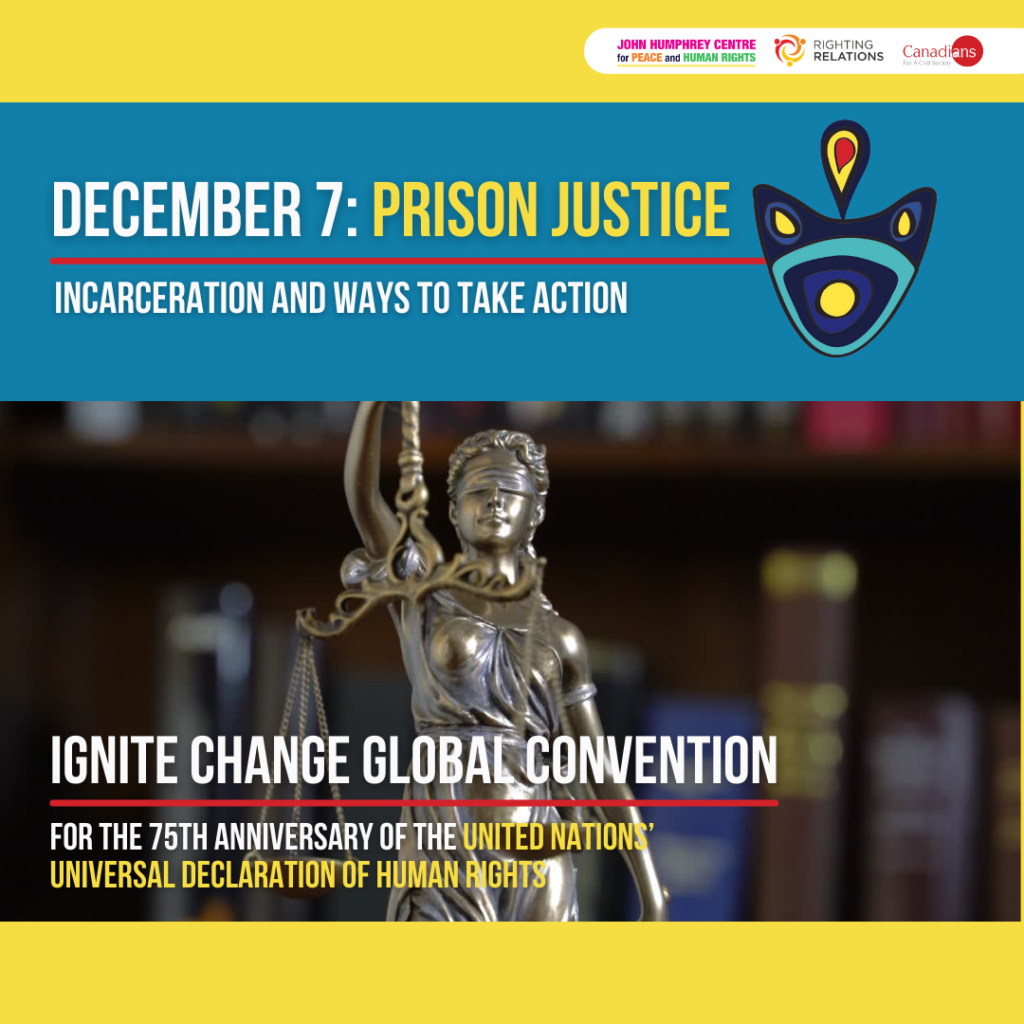
Grounding in the Mandela Rules at the Ignite Change Global Convention for the John Humphrey Centre for Peace and Human Rights
According to the first principle of The Nelson Mandela Rules, “no prisoner shall be subjected to, and all prisoners shall be protected from, torture and other cruel, inhuman or degrading treatment or punishment, for which no circumstances whatsoever may be invoked as a justification. The safety and security of prisoners, staff, service providers and visitors shall be ensured at all times.”
Throughout the Prison Justice day of the conference, participants reflected on issues impacting prisoners’ rights. As a wrap-up to this important human rights topic, Andrea Monteiro joined scholars Tony Doob, and Kelly Hannah-Moffat in a panel discussion moderated by Abby Deshman to share our experiences and perspectives working with correctional agencies to address prison rights and the disproportionate use of, and focus on, solitary confinement/segregation.

Jails, Asylums, or Treatment Facilities? The Humane Management of Complex Justice-Involved Clients Through Integrated Building Design and Operations at The Pauly Jail Building Company’s Mental Health Facility & Criminal Justice Seminar, Georgia, United States of America
Attendees heard from ECC Inc. on how the implementation of progressive person-centred care can be used to safely, and humanely, manage today’s complex jail and prison populations.
Programs implemented in Canada were used as examples of how some jurisdictions amended legislation, regulations, policies, and operational practices to improve staff safety and client outcomes, and how architecture and purposeful interior design features can further program effectiveness.
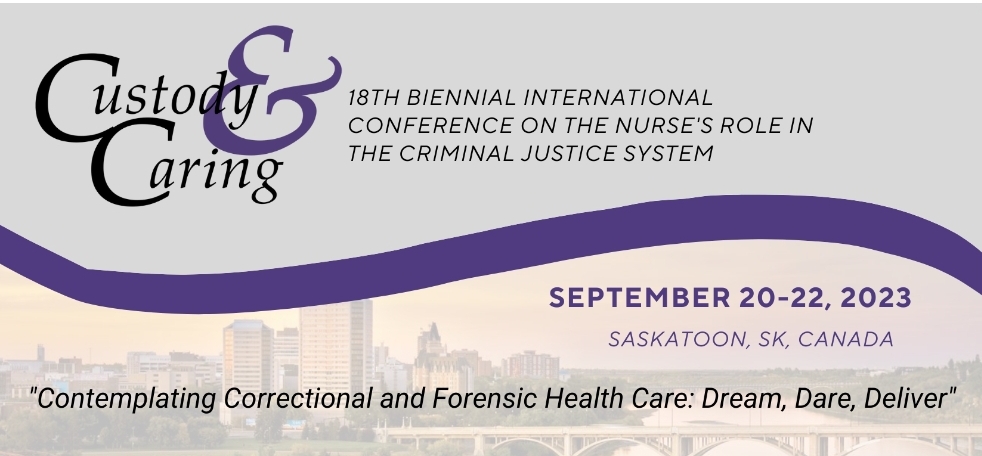
Working Together for Enhanced Client Outcomes: Strategies to Pragmatically Improve Clinical and Operational Collaboration within a Custodial Setting at the Custody and Caring 18th Biennial International Conference on the Nurse’s Role in the Criminal Justice System, Saskatchewan, Canada
Due to a lack of available community supports and interventions, today’s correctional facilities house some of our communities’ most vulnerable populations, many of whom have complex health needs that exceed available prison-based services and supports. While there is significant discussion surrounding the need to improve treatment outcomes for correctional clients, these aspirational goals often fall short.
There are many reasons why correctional administrators struggle to implement the aspirational goals of providing normalized, therapeutic, and restorative care to their clients. In this workshop, participants had an opportunity to candidly engage with a former Canadian correctional administrator (Andrea Monteiro) to discuss how managing correctional clients with complex health needs creates professional and operational dilemmas.
With the involvement of participants, we examined current cases where behavioural manifestations of illness were viewed as punishment within corrections and explored alternate operational strategies that could be employed in the future.
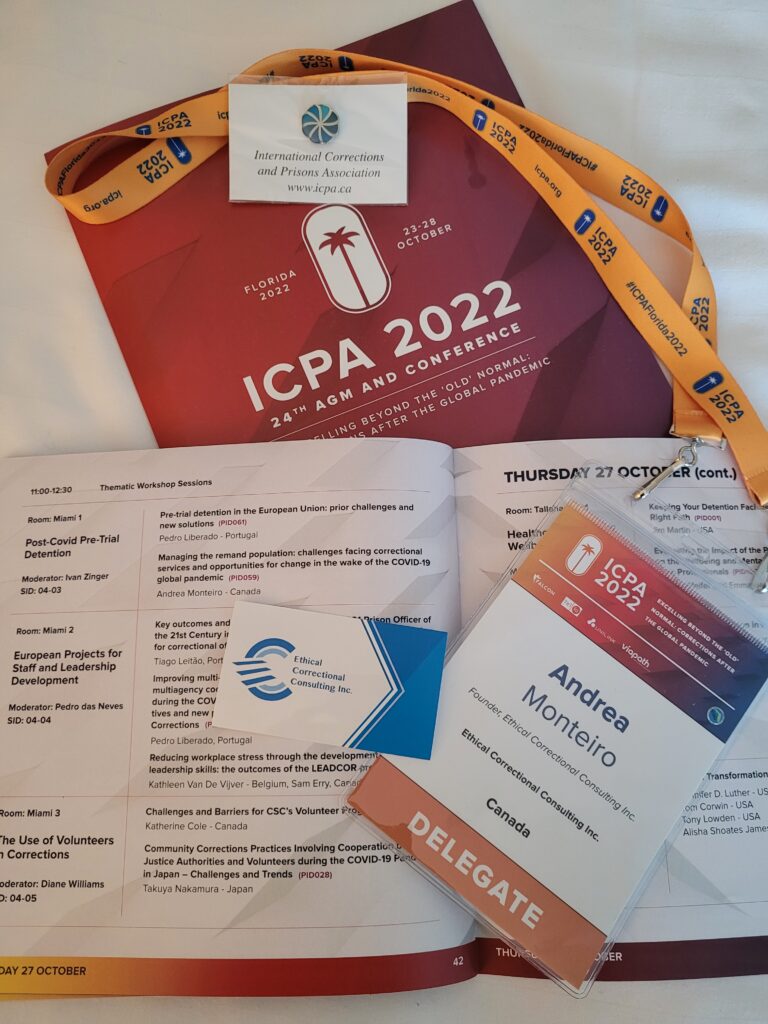
Managing the Remand Population: Challenges Facing Correctional Services in the Wake of the COVID-19 Global Pandemic at the International Corrections and Prisons Association 2022 Conference
Corrections is often criticized for high rates of incarceration and the overrepresentation of Indigenous peoples and visible minorities, despite the fact that they have no control over who is arrested and, subsequently, brought to their facilities. In many jurisdictions, the bulk of the adult custodial population is comprised of individuals on remand; that is, those awaiting trial or sentencing who are legally presumed innocent. Managing this population presents unique challenges, particularly during the COVID-19 global pandemic. This presentation examined some of these challenges before delving into potential solutions that seek to improve outcomes while balancing the principle of least restrictive measures with public safety.
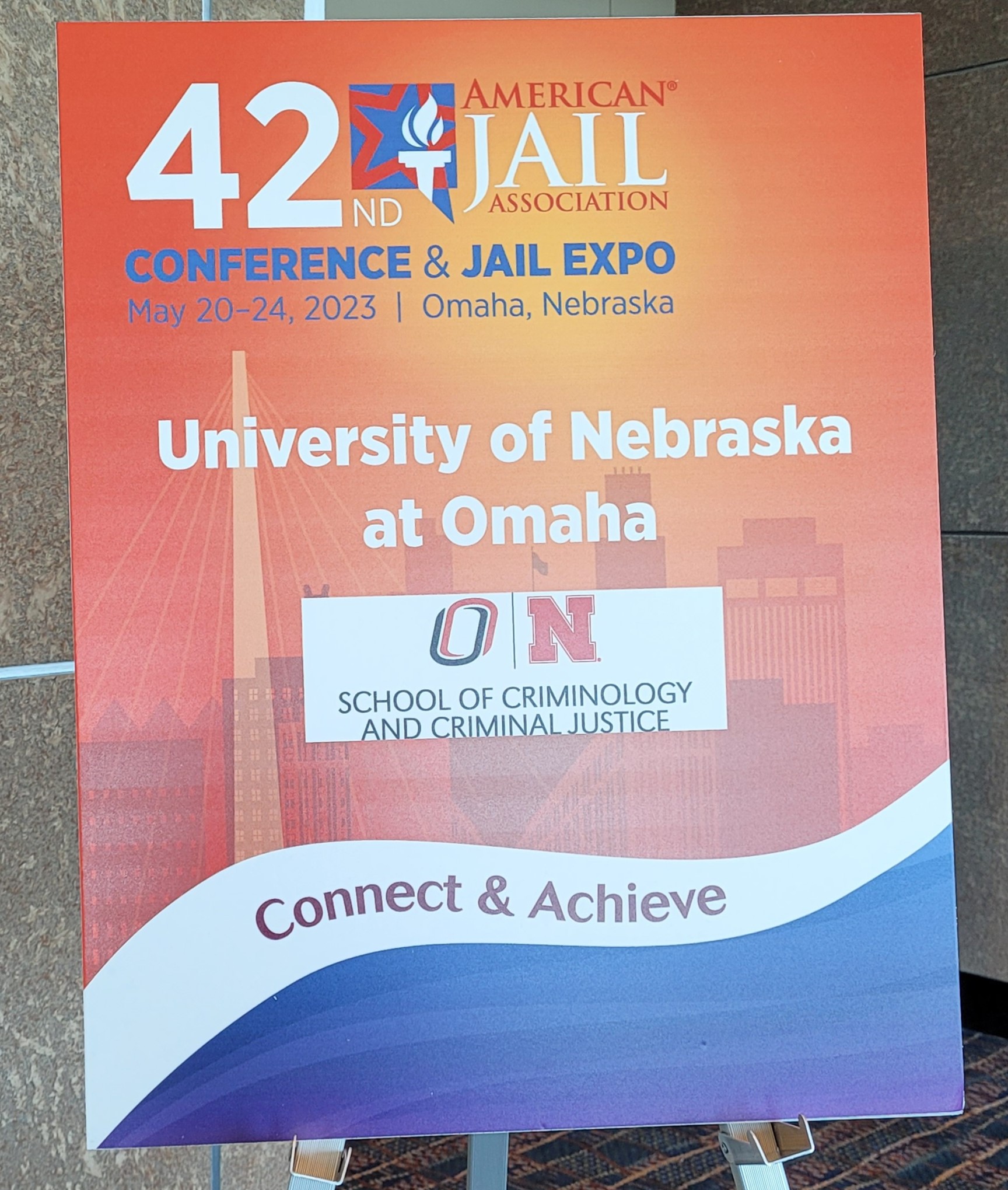
Restrictive Housing and Costly Litigation vs. the Humane Management of Complex Correctional Clients at the American Jail Association 42nd Conference in Omaha, Nebraska
In this session, participants learned that solitary confinement by any other name is still solitary confinement. We explored today’s jail population, why solitary confinement and restrictive housing language is important, and, discussed the role of operational practices and purposeful facility design to better support the management of complex correctional clients.
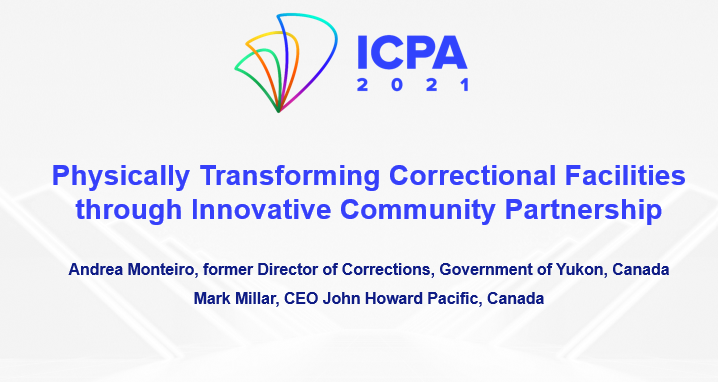
Physically Transforming Correctional Facilities through Innovative Community Partnerships at the International Corrections and Prisons Association 2021 Conference
This joint Government of Yukon and John Howard Society Pacific (now Connective) presentation provided participants with the opportunity to learn how the Yukon is reforming their correctional system by focusing on decarceration and building partnerships with community service providers to deliver holistic, individualized, person-centred care. Conference participants learned about the joint initiative between the Government of Yukon and the John Howard Society Pacific to create and operationalize the Supervised Housing & Reintegration Program (SHARP) using a former unit within Yukon’s only correctional centre.
